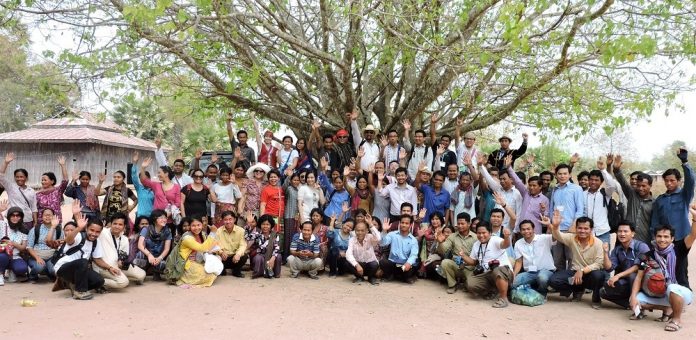Indigenous peoples in Asia formulated their advocacy action plan for more organized and sustained engagements with UN mechanisms and on the ASEAN platform. Common statements and reports were agreed upon and tasks were assigned to those attending the 2015 sessions of the UN Permanent Forum on Indigenous Issues (UNPFII), the Expert Mechanism on the Rights of Indigenous Peoples [EMRIP], and the Forum on Business and Human Rights.
Published: Monday, 30 March 2015
Siem Reap, Cambodia. Indigenous peoples in Asia formulated their advocacy action plan for more organized and sustained engagements with UN mechanisms and on the ASEAN platform. Common statements and reports were agreed upon and tasks were assigned to those attending the 2015 sessions of the UN Permanent Forum on Indigenous Issues (UNPFII), the Expert Mechanism on the Rights of Indigenous Peoples [EMRIP], and the Forum on Business and Human Rights. These were the results, among others, of the annual Asia Preparatory Meeting on UN Mechanisms and Procedures Relating to Indigenous Peoples organized by the Asia Indigenous Peoples Pact and hosted by the Cambodia Indigenous Peoples Alliance.
Forty delegates from 12 countries from 28 indigenous peoples in Asia gathered this year at Siem Reap from March 13–16 for this annual regional meeting. It was attended by the United Nations [UN] Special Rapporteur on the Rights of Indigenous Peoples Ms. Victoria Tauli Corpuz and Ms. Joan Carling, expert member of the UN Permanent Forum on Indigenous Issues. This year’s gathering was participated in by indigenous peoples’ human rights defenders [IPHRDs] who shared their experiences and young IPHRDs eager to learn about international advocacy work.
The participants discussed the commitments of governments in the World Conference on Indigenous Peoples, particularly on the formulation of national action plans, and UN System-Wide Action Plan for engagement with states and UN agencies. This year’s EMRIP session in July is also important in relation to the review of the mandate of this mechanism. All the participants committed to contribute to the advocacy plan by sending reports, cases and other relevant information.
The introduction of the monitoring framework and tools for the implementation of the UNDRIP and the practical exercise were found to be helpful to gain insight into their functions. “The framework clearly shows the links of the UNDRIP to existing human rights instruments as it applies to indigenous peoples based on their specific circumstances. There is no reason that our governments should refuse to implement the UNDRIP,” commented first-time participant Paramananda Chayengi, President of the Mishing Ba:ne Kebang of Assam, India.
Engagement with the ASEAN this year during the ASEAN Peoples Forum to be held in April 2015 in Kuala Lumpur, Malaysia will focus on presenting the results of the country studies on ASEAN and how governments can implement their commitments to the Outcome Document.
The Kui indigenous peoples of Siem Reap called on their spirits and ancestors to ensure a fruitful discussion during the meeting. The Kui community of Prame Commune in Preah Vihear Province also hosted the participants in their community as a way of building solidarity with other indigenous peoples who are also struggling like them to defend their ancestral lands.
“The UN mechanisms and procedures are only one arena where we can seek redress. The more important action is our unity and solidarity in defending our rights, learning from each other, and strengthening our communities and building alliances with others so that we can make our governments accountable to their obligations to respect, protect and fulfill our rights,” reminded Joan Carling.
Source : aippnet.org
Organisation/s Involved
Asia’s Indigenous People Pact (AIPP)


